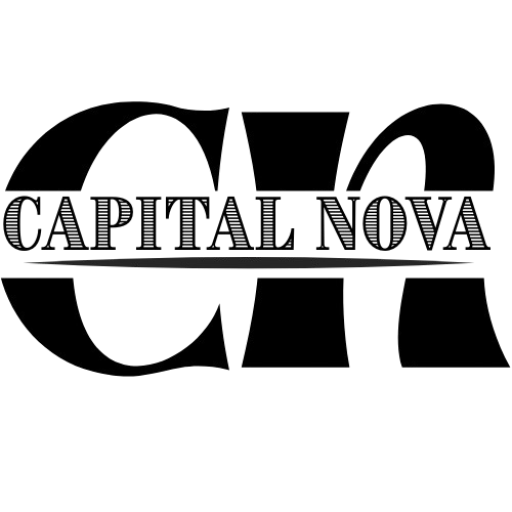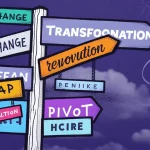Table of Contents
In the fast-paced world of finance, carving out a successful banking career requires more than just basic knowledge of numbers and transactions. As someone who’s spent over a decade watching colleagues rise through the ranks—and others plateau despite their talents—I can tell you that success in banking isn’t just about what you know, it’s about how strategically you approach your professional development.
The banking industry has transformed dramatically since I started my career. What worked for previous generations won’t necessarily work today. Are you ready to take the next step and elevate your banking career? Let me share the insider strategies that actually work in today’s competitive landscape.
Understanding Today’s Banking Landscape
Before you can elevate your banking career, you need to understand that modern banking is far more complex than most people realize. The industry has evolved into distinct specializations, each requiring different skill sets and offering unique advancement opportunities:
Commercial Banking remains the backbone of traditional banking, focusing on business loans, credit facilities, and relationship management. This sector offers stable growth and excellent client interaction opportunities.
Investment Banking continues to attract ambitious professionals with its high-stakes deals, capital raising activities, and advisory services. While demanding, it offers some of the fastest advancement tracks in finance.
Retail Banking has undergone a digital revolution, now emphasizing customer experience, digital products, and community engagement. Success here requires both technical knowledge and strong interpersonal skills.
Corporate Banking serves large corporations with sophisticated financial needs, including treasury management, international trade finance, and complex credit structures. This area demands deep analytical skills and strategic thinking.
Understanding these segments isn’t just academic—it’s crucial for identifying where your natural strengths align with market opportunities. I’ve seen too many talented professionals struggle because they chose a path that didn’t match their skills or interests.

Strategic Education and Skill Development
Here’s what most banking career guides won’t tell you: your initial degree is just the entry ticket. Real advancement comes from continuous, strategic learning that sets you apart from your peers.
Professional Certifications That Actually Matter: The CFA (Chartered Financial Analyst) designation remains the gold standard for investment professionals, but don’t overlook the FRM (Financial Risk Manager) certification, which has become increasingly valuable as banks focus more on risk management. According to the CFA Institute, professionals with these credentials earn significantly more than their non-certified counterparts.
Emerging Skills for Modern Banking: Today’s banking professionals need to understand fintech, blockchain applications, and data analytics. I recommend focusing on Python programming and SQL databases—these technical skills are becoming non-negotiable in many roles.
Strategic Learning Approaches: Instead of random course-taking, focus on building expertise clusters. For example, combine traditional credit analysis with machine learning applications, or pair relationship management skills with digital banking knowledge.
Building Your Professional Network Strategically
Networking isn’t just about collecting business cards—it’s about building mutually beneficial relationships that advance your banking career over time. Here’s how to do it effectively:

Industry Organizations Worth Joining: The American Bankers Association offers excellent networking opportunities, but don’t overlook regional organizations where you can build deeper relationships. The Risk Management Association (RMA) provides particularly valuable connections for commercial banking professionals.
Conference Strategy: Don’t just attend conferences—prepare strategically. Research attendees beforehand, set specific networking goals, and follow up within 48 hours. I’ve seen careers transformed by single conversations at the right events.
Digital Networking Excellence: LinkedIn isn’t just a platform—it’s your professional brand headquarters. Share insights, comment thoughtfully on industry posts, and consistently demonstrate your expertise. The banking professionals who thrive today are those who build their reputation both online and offline.
The financial sector is undergoing rapid transformation, and professionals must adapt just as accountants prepare for change in [Are You Ready for the 2025 Accounting Revolution?].
Gaining Strategic Experience
Experience remains crucial for any banking career, but not all experience is created equal. Smart professionals seek diverse experiences that build complementary skill sets:
Cross-Functional Exposure: Volunteer for projects outside your department. Understanding how different bank divisions interact gives you a significant advantage when leadership positions become available.
Client-Facing Opportunities: Even if you’re in a back-office role, seek opportunities to interact with clients. Understanding customer needs from a direct perspective makes you more valuable regardless of your specific position.
Regulatory and Compliance Knowledge: Banking is heavily regulated, and professionals who understand compliance requirements are always in demand. This knowledge becomes particularly valuable as you advance into management roles.
Staying Ahead of Industry Evolution
The banking industry’s pace of change has accelerated dramatically. Professionals who succeed in their banking career are those who anticipate trends rather than react to them:
Technology Integration: Artificial intelligence, blockchain, and automated processes are reshaping every aspect of banking. Don’t wait for your employer to provide training—take initiative to understand these technologies and their applications.
Regulatory Landscape: Banking regulations continue evolving, creating both challenges and opportunities. Professionals who understand upcoming regulatory changes can position themselves as valuable resources for their organizations.
Customer Behavior Shifts: Modern customers expect digital-first experiences with personalized service. Understanding these evolving expectations helps you contribute meaningfully to your bank’s strategic initiatives.
Essential Soft Skills for Banking Success
While technical knowledge opens doors, soft skills determine how far your banking career will progress:
Advanced Communication Skills: Banking involves explaining complex concepts to diverse audiences. Practice translating technical information into clear, actionable insights. This skill becomes more valuable as you advance.
Relationship Building: Banking remains a relationship business. Focus on building long-term connections rather than transactional interactions. The most successful banking professionals I know are those who genuinely care about their clients’ success.
Leadership and Influence: Even in individual contributor roles, leadership skills matter. Volunteer to lead projects, mentor newer employees, and demonstrate your ability to influence positive outcomes.
Strategic Career Planning
The most successful banking professionals don’t leave their advancement to chance. They plan strategically and execute consistently:
Goal Setting with Timelines: Instead of vague aspirations, set specific, measurable goals with realistic timelines. For example, “Achieve senior analyst level within 18 months by completing CFA Level 1 and leading two major client projects.”
Mentor Relationships: Identify successful professionals whose career paths interest you. Most banking executives are willing to share insights with genuinely interested colleagues. These relationships provide invaluable guidance and often lead to unexpected opportunities.
Performance Documentation: Keep detailed records of your achievements, successful projects, and positive client feedback. This documentation becomes invaluable during performance reviews and when pursuing new positions.
Taking Action on Your Banking Career
Success in banking doesn’t happen by accident. It requires intentional effort, strategic thinking, and consistent execution. The professionals who thrive are those who treat their career development as seriously as they treat their daily responsibilities.
The banking industry offers incredible opportunities for those willing to invest in themselves. Whether you’re just starting your journey or looking to accelerate your progression, remember that every expert was once a beginner. The difference between those who succeed and those who plateau is often simply the willingness to continuously grow and adapt.
Start implementing these strategies today. Your future self—and your banking career—will thank you for the investment you make now.








